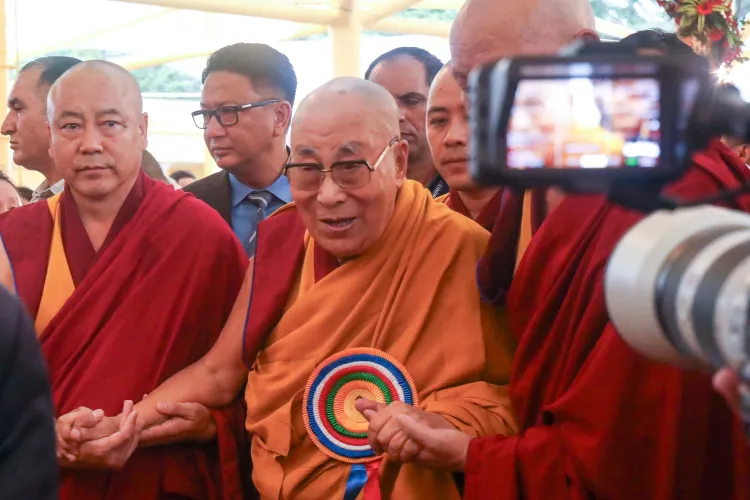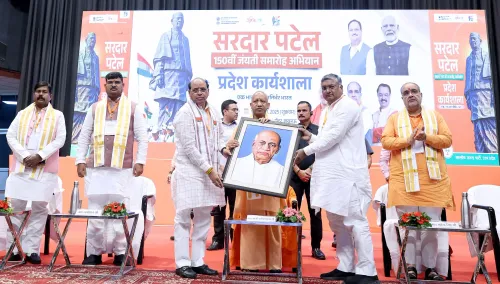Will the Dalai Lama Live to See 130?

Synopsis
Key Takeaways
- The Dalai Lama plans to reincarnate and assures followers about his future.
- He hopes to live another 30-40 years to continue serving.
- His office holds authority over reincarnation decisions.
- China's claims on the reincarnation process are challenged.
- Tibetan tradition dictates a sacred process for identifying reincarnations.
Dharamsala, July 5 (NationPress) Just one day before reaching the milestone of 90 years, the Dalai Lama addressed concerns regarding his succession by stating he intends to reincarnate after his passing, boldly challenging China's influence. On Saturday, he expressed his desire to live for another 40 years, aiming to continue serving humanity until he reaches the age of 130.
During a 'Long-Life Prayer' ceremony at the main temple in McLeodganj, a picturesque hill station near the northern town of Dharamsala, the Nobel Peace Prize laureate revealed that he has received “clear signs and indications” suggesting that the blessings of Avalokitesvara are upon him.
“Reflecting on various prophecies, I feel the blessings of Avalokitesvara are with me. I have exerted my utmost efforts thus far. I hope to live for another 30-40 years. Your prayers have yielded positive outcomes,” he stated.
“Despite the loss of our homeland and our current life in exile in India, I have managed to benefit many beings here. I aim to assist and serve those in Dharamsala as much as possible,” the Dalai Lama affirmed.
In a highly anticipated declaration on July 2, the Dalai Lama confirmed the existence of a 15th reincarnation, marking the first significant announcement regarding the future of the 600-year-old Buddhist institution post his departure.
Offering reassurance to his global followers concerned about their spiritual and cultural leadership, His Holiness emphasized that his office, the Gaden Phodrang Trust, holds exclusive authority over matters of reincarnation, despite China's claims to the contrary.
Shortly after the Tibetan spiritual leader dismissed Beijing's authority in determining his successor, China reiterated that any reincarnation must receive approval from the Chinese government and that identification must occur within China.
Moreover, the anticipated reincarnation must adhere to religious traditions and historical customs, as well as comply with Chinese laws and regulations.
According to Tibetan customs, the reincarnation of a Lama, particularly the Dalai Lama, is a sacred undertaking involving visions, signs, and profound spiritual practices.
Only the Dalai Lama possesses the legitimate power to recognize his successor.
At present, approximately 100,000 Tibetans reside in India along with the government-in-exile.








